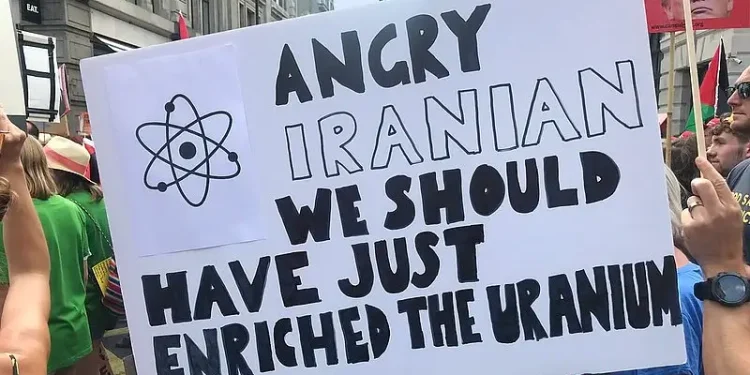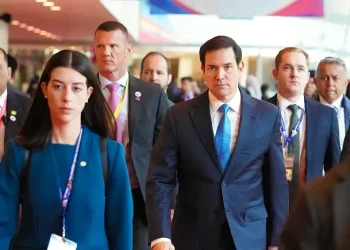The United States has welcomed the decision of France, Germany, and the United Kingdom to trigger the “snapback” mechanism under UN Security Council Resolution 2231.
This coordinated move will restore international sanctions on Iran, marking a pivotal escalation in global efforts to enforce nuclear compliance.
Introduction
In August 2025, the United States expressed strong support for its European allies as they initiated the snapback process to reimpose sanctions on Iran.
The decision follows years of Tehran’s non-compliance with the 2015 nuclear deal, highlighting renewed international resolve to curb nuclear proliferation and strengthen global security standards.
E3 Leadership and U.S. Support
The so-called E3—France, Germany, and the United Kingdom—formally began the snapback process this week after concluding that Iran had committed “significant non-performance” of its obligations.
The United States applauded this move, noting that European allies had shown restraint since 2019 by prioritizing diplomacy.
Officials in Washington emphasized that while the U.S. remains open to direct engagement with Iran, sanctions are an essential tool for ensuring compliance.
By backing the E3 initiative, the U.S. reaffirmed its commitment to both enforcement and diplomacy, striking a balance between deterrence and negotiation.
Iran’s Non-Compliance
Since 2019, Iran has escalated uranium enrichment far beyond civilian energy needs. Inspectors have repeatedly faced restricted access to nuclear facilities, and demolition of suspected sites has heightened distrust.
These steps, combined with political repression at home and threats to withdraw from the Nuclear Non-Proliferation Treaty, left little room for optimism among negotiators.
The snapback process was designed precisely for these circumstances, ensuring that serious violations would result in swift international consequences.
By reviving sanctions, the E3 and the U.S. aim to demonstrate that the global community will not tolerate unchecked nuclear escalation.
Direct Impact of Sanctions
The reimposition of sanctions is expected to deepen Iran’s economic challenges, particularly in energy exports, financial markets, and international trade.
Ordinary citizens will likely face higher inflation and reduced access to goods, while the government contends with growing internal unrest.
For the global economy, sanctions could disrupt energy markets and drive volatility in oil prices. U.S. and European businesses, particularly in energy and defense sectors, will need to adapt to evolving compliance and security demands.
Sanctions Timeline and Consequences
| Year/Period | Sanctions Status | Key Effects |
|---|---|---|
| Pre-2015 | Full UN sanctions enforced | Severe restrictions on Iran’s trade, banking, and energy sectors |
| 2015–2018 | Sanctions eased under nuclear deal | Increased oil exports, partial reintegration into global markets |
| 2019–2024 | Partial non-compliance by Iran, limited sanctions reintroduced | Rising tensions, restricted oversight, economic uncertainty |
| 2025 (current) | Snapback mechanism triggered | Full reimposition of sanctions, renewed global enforcement efforts |
International Dynamics
While the E3 and the U.S. apply pressure, Russia and China continue to support Iran diplomatically. Moscow has provided fuel for Iran’s civilian nuclear plants and engaged in joint naval exercises, while Beijing has opposed sanctions as counterproductive, instead urging dialogue.
This division within the global community complicates enforcement. However, the snapback underscores that a majority of international actors remain united in prioritizing non-proliferation, signaling that Tehran cannot rely solely on alternative alliances to bypass restrictions.
Broader Implications
-
Sanctions are likely to deepen domestic economic hardship, fueling discontent among Iranian citizens.
-
Energy market volatility may affect global prices, impacting consumers and businesses worldwide.
These outcomes reinforce the high stakes of the snapback decision, extending its impact well beyond the immediate nuclear debate.
U.S. Policy Outlook
American officials have stressed that sanctions do not contradict a readiness for diplomacy. Instead, they argue, sanctions strengthen negotiating leverage by showing Iran that its path forward hinges on compliance.
Recent U.S. military action against nuclear facilities highlighted Washington’s resolve, but policymakers continue to emphasize that future strikes are not a default strategy.
Instead, deterrence, sanctions, and engagement remain the pillars of U.S. policy toward Iran.
To Conclude
The snapback of UN sanctions on Iran marks a decisive moment in international diplomacy. By aligning with European allies, the United States is reinforcing the global non-proliferation regime while leaving open the possibility of renewed negotiations.
As sanctions take effect, the world will watch closely to see whether Tehran chooses escalation or cooperation—a choice with profound implications for regional stability and international security.
Sources: US Department of State.
Prepared by Ivan Alexander Golden, Founder of THX News™, an independent news organization delivering timely insights from global official sources. Combines AI-analyzed research with human-edited accuracy and context.









